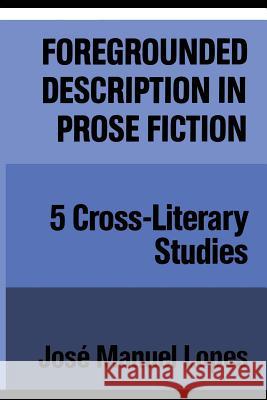Foregrounded Description in Prose Fiction: Five Cross-Literary Studies » książka
Foregrounded Description in Prose Fiction: Five Cross-Literary Studies
ISBN-13: 9781442623064 / Angielski / Miękka / 1995 / 196 str.
In this wide-ranging study, JosE Manuel Lopes proposes a theoretical framework for analysing the role of description in prose fiction. He offers readings of texts drawn from four national literatures--French, Spanish, Portuguese, and Brazilian--testing his model across a cultural and temporal spectrum. This critical breadth also illustrates the significance of description in disparate contexts: the postmodern novel, which implicitly challenges conventional notions of foreground and background, as well as the naturalist and realist fiction of the nineteenth century. Lopes applies his model to detailed readings of Emile Zola's Une Page d'amour, Claude Simon's Histoire, Benito PErez GaldOs' La de Bringas, CornElio Penna's A Menina Morta, and Carlos de Oliveira's Finisterra. In addition to exploring the interplay of description and narration, these readings pay particular attention to spatial descriptions, and analyse the diverse roles of description in different contexts. After subjecting each fictional text to a detailed analysis which seeks to bring out the crucial aspects that contribute towards the foregrounding of descriptive passages (e.g., mise en abyme, parody, modes of representation), and which establishes, on occasion, certain relations that literary description may entertain with the other arts, he attempts to isolate the primary functions of foregrounding descriptions. What he seeks to demonstrate is that description constitutes a major textual component necessary for the analysis and understanding of both nineteenth- and twentieth-century fictional texts.











